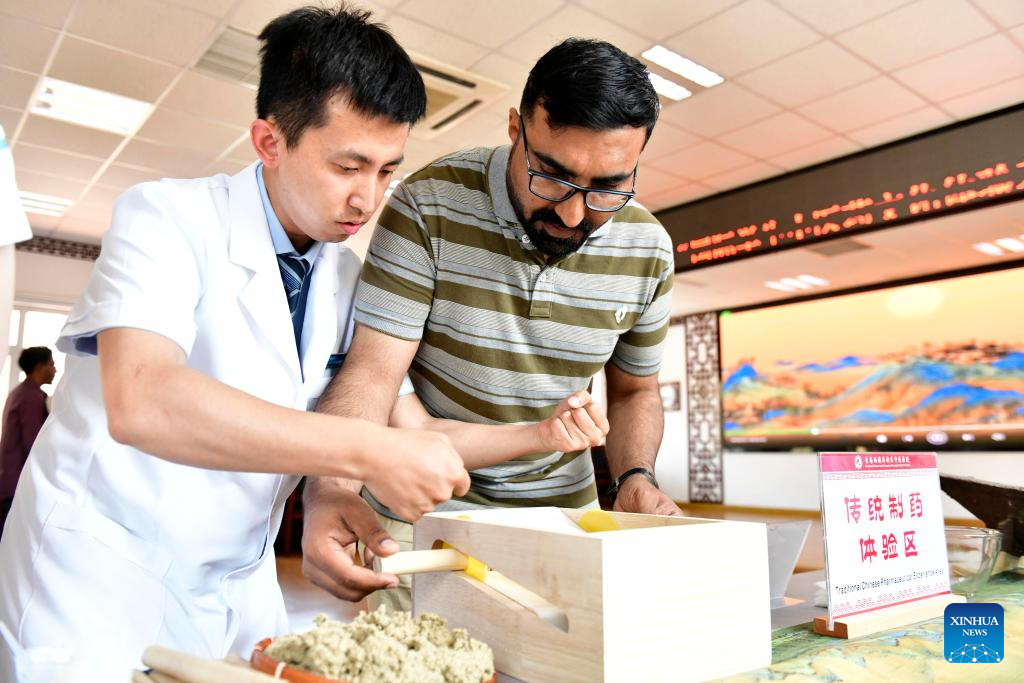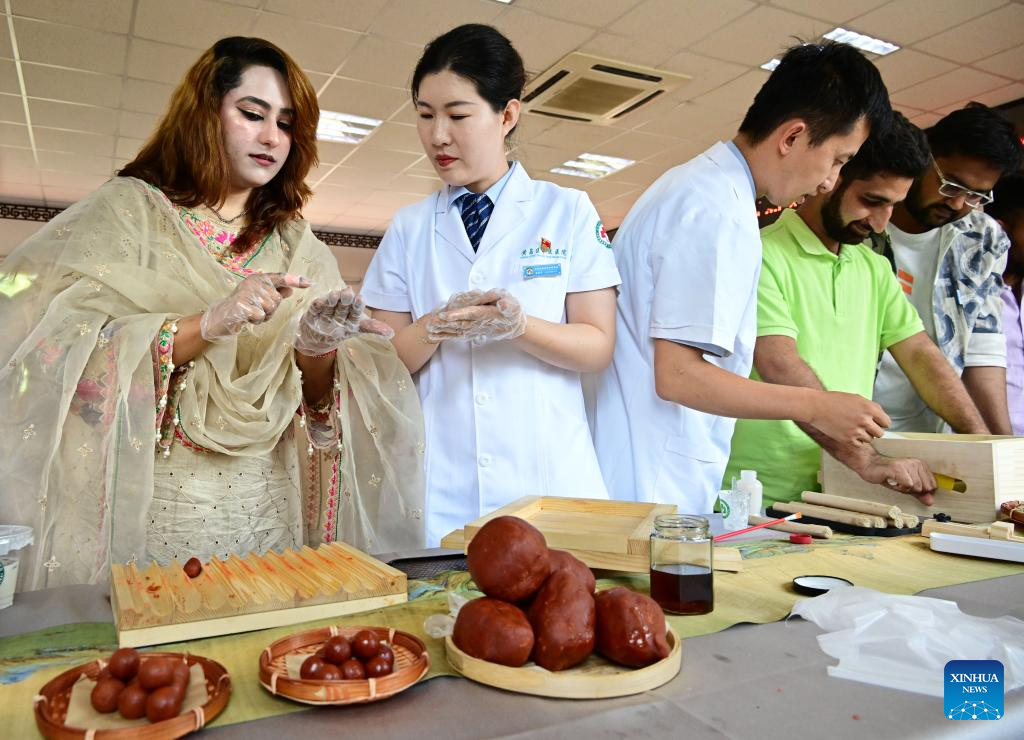
There is huge potential for traditional Chinese medicine (TCM) to go global, starting by expanding its spread among Association of Southeast Asian Nations members, said experts participating in the International Conference of the Modernization of Chinese Medicine & Health Products 2024 in Hong Kong.
Timothy Tin Lok Tam, chief operation officer of Ling Nam Medicine Factory (HK), noted the opportunities for TCM within the Belt and Road Initiative at the conference.
He said the National Administration of Traditional Chinese Medicine and BRI authorities have jointly formulated plans to promote high-quality integration of TCM into the development of the BRI, providing a great opportunity to expand the export of TCM into ASEAN markets.
ALSO READ: Global standards help boost TCM, Hong Kong forum hears
Five ASEAN countries — Malaysia, Indonesia, Singapore, Thailand, and Vietnam — account for around 97 percent of the total TCM trade volume between China and ASEAN. The five countries have a history of using TCM, he added.
He noted that TCM enjoys relatively high recognition and acceptance in these countries — all of which have established a good economic connection with China, by setting up some free trade zones under the BRI.
Tam said except for Singapore, the others are developing countries that often lack a very well-established pharmaceutical manufacturing system.
This makes them very eager for affordable, high-quality medicines with natural ingredients, which he said provides an excellent opportunity for the proliferation of TCM in these countries.

On Laos, Tam said that its drug production and supply are currently far from capable of meeting domestic demand, presenting a huge investment opportunity for the growth and expansion of TCM.
As Laos' economy experiences rapid growth and its government raises investment in public health and medical care, he said the public will need alternative healthcare channels and a supply of affordable, high-quality medicines, particularly TCM.
READ MORE: China to develop 'digital, smart traditional Chinese medicine'
The Malaysian government encourages clinical trials and new drug development, offering preferential investment policies for enterprises engaged in pharmaceutical production, which is a great opportunity for TCM, he said.
Tam stated that the situation with Laos and Malaysia applies in Myanmar, whose domestic pharmaceutical production meets less than 20 percent of domestic demand.
He said Myanmar's medicines are primarily imported from China, India, and other ASEAN countries, which offers an opportunity for TCM to take root in the country.
READ MORE: Olympics: Gold standard medical care
Apart from TCM’s opportunities in ASEAN countries, Chang Chen, founder of Chinese Essence Medical Group also told the Aug 15-16 conference how to help eczema diagnosis and treatment by combining TCM with artificial intelligence.
Chang said eczema is common among Hong Kong residents, with one-fifth suffering from the disease. She said her team has combined the principles of TCM with AI to improve curing rates and ease the pain of affected Hong Kong residents.
By utilizing big data, they have built a database for an AI-powered analysis system for eczema, significantly improving the efficiency of diagnosis and treatment, she said.
Contact the writer at mikegu@chinadailyhk.com


